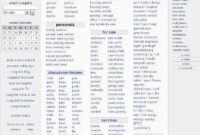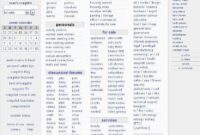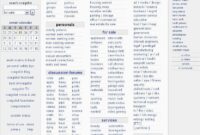Wholesale Pickup Trucks: A Comprehensive Guide to Bulk Acquisition pickup.truckstrend.com
Pickup trucks are the workhorses of the modern economy, indispensable for businesses ranging from construction and landscaping to logistics and delivery services. For dealerships, fleet managers, exporters, and even large-scale individual buyers, acquiring these versatile vehicles at wholesale prices presents a significant strategic advantage. This comprehensive guide delves into the world of wholesale pickup trucks, offering insights into their importance, acquisition methods, benefits, challenges, and practical advice for navigating this dynamic market.
Understanding Wholesale Pickup Trucks
Wholesale Pickup Trucks: A Comprehensive Guide to Bulk Acquisition
At its core, "Wholesale Pickup Trucks" refers to the bulk purchase of these vehicles, typically at prices significantly lower than retail. This market primarily caters to businesses or individuals with the capacity and need to acquire multiple units, often for resale, fleet expansion, or export. Unlike a single consumer buying a truck from a dealership, wholesale transactions involve larger volumes, different sales channels, and a focus on maximizing profit margins or operational efficiency through cost-effective acquisition.
The importance of this segment cannot be overstated. For dealerships, wholesale sourcing is crucial for replenishing inventory, especially for popular models. For businesses, it’s about equipping their operations with the necessary vehicles while managing budgets effectively. In the competitive automotive landscape, mastering wholesale acquisition can be the key to profitability and sustained growth.
Why Buy Wholesale Pickup Trucks?
The decision to purchase pickup trucks at wholesale prices is driven by several compelling advantages:
- Significant Cost Savings: The primary motivator is the ability to acquire vehicles at a lower per-unit cost compared to retail. This allows dealerships to maximize their profit margins upon resale and businesses to reduce their capital expenditure on fleet expansion.
- Inventory Management & Diversity: For dealerships, wholesale channels offer a vast selection of makes, models, years, and configurations, enabling them to curate a diverse inventory that meets various customer demands. It’s an efficient way to stock up on popular trucks.
- Fleet Expansion & Replacement: Businesses with large fleets, such as construction companies, utility providers, or logistics firms, can systematically expand or replace their vehicles without incurring exorbitant retail costs.
- Export Opportunities: Many wholesale buyers source trucks specifically for export to international markets where demand is high and supply might be limited.
- Access to Specific Configurations: Wholesale markets often have a broader availability of specialized truck configurations (e.g., specific bed lengths, engine types, towing packages) that might be harder to find in typical retail inventories.

Who Benefits from Wholesale Pickup Trucks?
The ecosystem of wholesale pickup truck buyers is diverse, each group leveraging the benefits in unique ways:

- Automotive Dealerships (New & Used): The most prominent beneficiaries. They acquire inventory for their lots, often supplementing direct manufacturer allocations or sourcing specific used models to meet market demand.
- Fleet Management Companies: Companies that manage vehicle fleets for other businesses frequently buy wholesale to provide cost-effective solutions to their clients.
- Construction & Contracting Firms: These businesses constantly need durable trucks for hauling materials, equipment, and personnel. Wholesale purchasing helps them maintain a robust fleet.
- Logistics & Delivery Companies: For last-mile delivery or long-haul operations, reliable pickup trucks are essential. Buying wholesale ensures they can scale their operations efficiently.
- Utility & Municipalities: Government agencies and utility companies often purchase trucks in bulk for their service fleets, benefiting from competitive wholesale pricing.
- Vehicle Exporters: Buyers who specialize in shipping vehicles to other countries rely heavily on the wholesale market for competitive pricing and volume.
- Rental Car Companies: They regularly update their fleets, and wholesale channels provide an economical way to acquire new or gently used trucks.

Where to Find Wholesale Pickup Trucks?
The wholesale market for pickup trucks is multifaceted, with several key channels:
- Manufacturer Auctions (Dealer-Only): Major manufacturers like Ford, GM, Ram, Toyota, and Nissan hold closed auctions exclusively for their franchised dealers. These often feature off-lease vehicles, program cars, and trade-ins.
- Wholesale Auction Houses: Large, independent auction companies such as Manheim, ADESA, and Ritchie Bros. Auctioneers operate physical and online platforms. They host massive auctions featuring vehicles from dealerships, rental companies, financial institutions (repossessions), and large fleets.
- Dealer-to-Dealer Networks & Platforms: Online platforms and informal networks allow dealerships to buy and sell vehicles directly to each other, often to balance inventory or find specific models.
- Repossession & Fleet Sales: Banks, credit unions, and large corporations frequently liquidate their assets through dedicated sales events or specialized auctioneers.
- Online Wholesale Marketplaces: Dedicated B2B platforms like ACV Auctions, BacklotCars, and others facilitate digital wholesale transactions, providing detailed condition reports and virtual bidding.
- Direct from Large Fleets: Some large organizations, like utility companies or corporate fleets, might directly sell off their used trucks in bulk as part of their fleet rotation strategy.
The Process of Buying Wholesale Pickup Trucks
Acquiring wholesale pickup trucks involves a systematic approach:
- Obtain Necessary Licensing: For most wholesale channels (especially dealer-only auctions), you’ll need a valid dealer license. Individual businesses or bulk buyers without a license may need to work through a licensed broker or agent.
- Define Your Needs & Budget: Clearly identify the types of trucks you need (light-duty, heavy-duty, specific features), the desired condition (new, used, off-lease), and set a firm budget per unit.
- Research Market Trends: Understand current supply and demand, seasonal fluctuations, and the average wholesale prices for the models you’re targeting. Utilize market data tools provided by auction houses or third-party services.
- Source & Inspect Vehicles: Browse auction listings, online marketplaces, or direct sales. Crucially, perform thorough inspections (or review detailed condition reports) for each vehicle. Look for mechanical issues, body damage, service history, and odometer discrepancies.
- Bidding & Negotiation: Participate in auctions or negotiate directly with sellers. Set a maximum bid or offer based on your research and inspection. Stick to your budget.
- Secure Financing: Arrange for financing in advance, whether through a line of credit, floor planning, or cash.
- Logistics & Transportation: Plan for the transportation of purchased vehicles from the auction site or seller’s location to your facility. This can involve professional auto transporters.
- Titling & Registration: Ensure proper transfer of titles and handle all necessary registration procedures according to state and local regulations.
Types and Categories of Wholesale Pickup Trucks
The wholesale market offers a wide array of pickup truck types:
- Light-Duty Pickups (Half-Ton):
- Examples: Ford F-150, Chevrolet Silverado 1500, Ram 1500, Toyota Tundra, Nissan Titan.
- Characteristics: Most popular for personal use, light hauling, and general utility. Available in various cab and bed configurations.
- Mid-Size Pickups:
- Examples: Toyota Tacoma, Chevrolet Colorado, Ford Ranger, Nissan Frontier, Jeep Gladiator.
- Characteristics: Smaller, more maneuverable, often more fuel-efficient than full-size. Popular for off-roading, light work, and urban driving.
- Heavy-Duty Pickups (Three-Quarter & One-Ton):
- Examples: Ford F-250/F-350, Chevrolet Silverado 2500HD/3500HD, Ram 2500/3500.
- Characteristics: Designed for heavy towing, massive payloads, and demanding commercial applications. Often used as chassis cabs for specialized upfits.
- Condition Categories:
- Off-Lease/Program Vehicles: Generally well-maintained, lower mileage.
- Fleet Vehicles: Can vary widely in condition and mileage, often well-maintained but with higher usage.
- Repossessions: Condition can be unpredictable, requiring thorough inspection.
- Salvage/Damaged: Acquired for parts or extensive repair, requiring significant investment.
Key Considerations and Challenges
While beneficial, wholesale buying comes with its own set of challenges:
- Condition Assessment: The biggest risk. Trucks are often sold "as-is," and hidden mechanical issues or undisclosed damage can significantly erode profits. Rely on detailed condition reports and third-party inspections.
- Transportation Costs: Moving multiple trucks can be expensive, especially over long distances. Factor these logistics costs into your per-unit calculation.
- Market Fluctuations: Wholesale prices are dynamic, influenced by economic conditions, fuel prices, and seasonal demand. Staying informed is crucial.
- Financing: Securing favorable financing for bulk purchases requires a strong financial history and established relationships with lenders.
- Licensing & Regulations: Navigating the legal requirements for wholesale buying (especially dealer licensing) can be complex and varies by region.
- Auction Fees: Be aware of buyer’s fees, gate fees, and other charges levied by auction houses.
- Refurbishment Costs: Many wholesale trucks will require reconditioning, detailing, or minor repairs before being ready for resale or active fleet duty. Factor these "reconditioning" costs into your budget.
Tips for Successful Wholesale Pickup Truck Purchases
To maximize your success in the wholesale market:
- Do Your Homework: Thoroughly research models, market values, and auction trends.
- Set Clear Buying Parameters: Define your maximum bid, desired condition, and acceptable mileage before you start. Stick to them.
- Build Relationships: Cultivate relationships with auction representatives, other dealers, and transporters. Networking can provide valuable insights and opportunities.
- Inspect Thoroughly (or Hire Experts): Never buy sight unseen without a robust condition report. If possible, have a trusted mechanic inspect vehicles.
- Factor in All Costs: Account for purchase price, auction fees, transportation, reconditioning, and any potential repair costs.
- Diversify Your Sources: Don’t rely on just one auction or platform. Explore various channels to find the best deals.
- Stay Updated on Market Trends: Use data analytics tools to monitor prices, inventory levels, and demand for specific models.
Illustrative Wholesale Pickup Truck Price Table
Please Note: This table provides illustrative price ranges for typical wholesale pickup truck models and conditions. Actual wholesale prices fluctuate daily based on market demand, mileage, specific features, geographical location, economic conditions, and the vehicle’s precise condition. These figures are for conceptual understanding only and should not be used for actual purchasing decisions.
| Make/Model | Year Range | Condition Rating | Typical Wholesale Price Range (USD) | Notes / Common Features |
|---|---|---|---|---|
| Ford F-150 | 2018-2022 | Good (70-90k mi) | $20,000 – $35,000 | XLT/Lariat trims common, EcoBoost/5.0L, Crew/SuperCab |
| Chevrolet Silverado 1500 | 2018-2022 | Good (70-90k mi) | $19,500 – $34,000 | LT/RST trims, 5.3L V8, Double/Crew Cab, Work Truck options |
| Ram 1500 | 2018-2022 | Good (70-90k mi) | $21,000 – $36,000 | Big Horn/Laramie, Hemi V8, Quad/Crew Cab, high demand |
| Toyota Tacoma | 2019-2023 | Good (50-80k mi) | $24,000 – $32,000 | TRD Off-Road/Sport, high resale, very reliable |
| Ford Ranger | 2019-2023 | Good (50-80k mi) | $21,000 – $28,000 | XLT/Lariat trims, 2.3L EcoBoost, SuperCab/SuperCrew |
| Ford F-250 Super Duty | 2017-2021 | Fair (80-120k mi) | $28,000 – $45,000 | XLT/Lariat trims, 6.7L Diesel or 6.2L Gas, heavy-duty |
| Ram 2500 | 2017-2021 | Fair (80-120k mi) | $27,000 – $44,000 | Cummins Diesel/6.4L Hemi, Tradesman/Big Horn, 4×4 |
| Nissan Frontier | 2019-2023 | Good (50-80k mi) | $18,000 – $26,000 | SV/Pro-4X trims, good value, reliable |
Frequently Asked Questions (FAQ)
Q1: Do I need a dealer license to buy wholesale pickup trucks?
A1: For most major auction houses and dealer-only sales, yes, a valid dealer license is required. However, some independent auctions or fleet sales might be open to the public, or you can work with a licensed broker.
Q2: What’s the typical savings when buying wholesale compared to retail?
A2: Savings can vary significantly, often ranging from 10% to 30% or more off the typical retail price, depending on the vehicle’s condition, demand, and how good a deal you find. However, remember to factor in auction fees, transportation, and reconditioning costs.
Q3: How can I assess the condition of a wholesale truck remotely?
A3: Reputable auction houses provide detailed condition reports, high-resolution photos, and sometimes even video inspections. Third-party inspection services are also available. Always scrutinize these reports and consider them carefully, as "as-is" sales mean you bear the risk.
Q4: What are the common pitfalls of buying wholesale?
A4: Common pitfalls include misjudging a vehicle’s true condition (leading to unexpected repair costs), underestimating transportation expenses, getting caught up in bidding wars, and failing to account for all fees and reconditioning costs.
Q5: Can individuals buy wholesale pickup trucks?
A5: Generally, direct access to the most advantageous wholesale channels (like dealer-only auctions) is restricted to licensed dealers. Individuals can sometimes buy from public auctions or work through a licensed dealer or broker, but the cost savings might be less significant than for a volume buyer.
Conclusion
The wholesale pickup truck market offers immense opportunities for businesses and large-scale buyers to acquire essential vehicles at competitive prices. While it demands thorough research, due diligence, and an understanding of its unique dynamics, the benefits of cost savings, diverse inventory access, and efficient fleet management are substantial. By leveraging the right channels, conducting meticulous inspections, and factoring in all associated costs, buyers can strategically navigate this market to fuel their growth and operational success. Mastering the art of wholesale acquisition is not just about finding a good deal; it’s about building a sustainable and profitable strategy for your vehicle needs.



